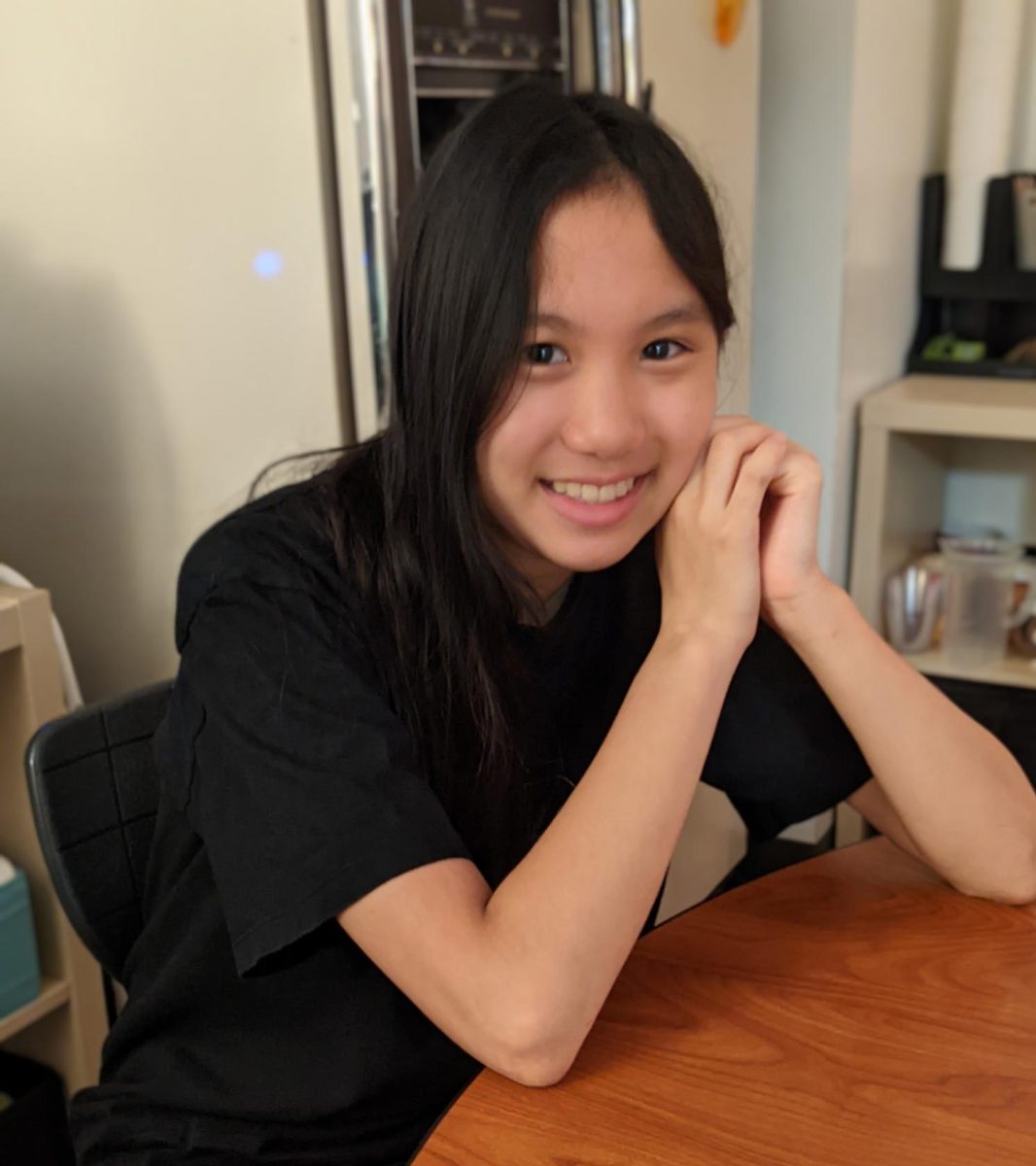“I try to write about things to capture emotions”
That was a quote from Prima Changwatchai, a junior and a poetry writer. She recently posted some of her poetry, “Night Owl”, to the Dreamcatcher, and we were interested to find out more about her passion, and why she likes to write.
Q: When did you discover your passion for writing?
I think a really, really long time ago. Like, maybe, seven years ago. In fourth grade, I would write, like, a hundred page stories on Google Docs, because I just had so much free time back then. I think it really allowed me to be creative back then. I’m trying to revive that now, even though I don’t have as much time. That’s why I write poems, because they’re shorter.
Q: So tell me about why you like to write.
I feel like it’s just a really nice way of creative expression. I think a lot of students are really academically inclined, especially at this school, so, sometimes it’s good to take a step back and focus on just expressing yourself.
Q: How do you come up with the topics that you write about?
I try to write about things to capture emotions, and [that explore] abstract concepts, like loneliness and nostalgia, because those are things that I felt a lot, and I want to put that into words.
Q: What is your writing process? How do you get from that idea in your head to a full fledged, ready to submit piece?
I usually have an idea in the form of a cool word that I want to write, and then I’m like, but it needs to be a little bit more meaningful. So I would just think if I picture this thing or idea in my head, what’s the most unique way that I can portray it?
And then I just write the first line. From there, writing seems almost natural, like the follow up. I don’t have a [particular] planning process. I just go for it.
Q: So when you’re writing, what are some goals that you keep in mind? What is something that you want to accomplish by the end of your piece?
I think I just want it to be very original, and I kind of want to let my own thoughts flow. [I want to] just write down the first thing that I think of, instead of planning it out, because I just want to have that raw meaning [left] in there.
Q: What would you say is the easiest part of writing and the hardest part of writing?
[When] you have the idea in mind, I feel like you’re just kind of like the vessel for like the words that come out, and [sometimes] I feel like just letting everything flow into the page.
That’s both the easiest part and the hard part. It’s really easy if you have inspiration. [Then it feels] almost automatic. I don’t really have to think about it, [and] I just start writing.
But, if I don’t have any inspiration at all, it’s really hard to have the creativity to just come up with your own idea, or continue a poem that’s going nowhere. Or if [there is a really] strict rhyme scheme that you have to adhere to, [it] can be kind of difficult.
Q: How do you get past that wall of not having inspiration, or feeling like you’re not going anywhere with your poem?
So usually what I do is I just wait it out. [I think to myself] ‘I’m going to pick this [up] later when I have the urge to write’.
But if I have to write a poem in class or something, I just think of other interesting concepts, like trying to compare my writing to a metaphor that I can expand on. I try to kind of weave it in and take it in a new direction.
Q: So how do you know when you have written something really good?
[I know] when I feel like it kind of stands out in some way, because a lot of my poetry just sounds the same. But whenever it takes me into a new direction, I feel like, oh, maybe this is something I can share. It deviates from my usual formula of just talking about, like, one thing, and it may bring, like, a new spin on it.
Or whenever I work really hard to make the rhymes, and I’m proud of myself, because sometimes it’s really hard to find words that rhyme and that also make sense. That tells me that I have written something good.
Q: Why did you decide to submit to the Dreamcatcher? And how do you pick which pieces to submit?
I decided to post because I think it’s motivational to know that someone will be reading what I’m writing. It motivates me to like, write the best thing I can.
I really like the feature of the Dreamcatcher where we can share submissions. I think it’s interesting to read what other Westwood students are writing. It’s just interesting to see who else is writing poetry.
Also, when I was younger, I would always subject my family to listening to [my poems] at the dinner table. Nowadays, I mostly just keep whatever I write to myself, but I feel like the Dreamcatcher is a nice way to share what I’m writing. It makes my writing feel a bit more official when I submit. That’s why I like the Dreamcatcher.
[And to choose my pieces,] I think I go for the pieces that I feel like are a little bit more relatable and less personal. I feel like those are the ones that I’d be more likely to share with someone face to face, and because I feel maybe if [other people] can relate to it, they might like it to.
Q: What is your advice for someone who’s wanting to write, but they’re stuck somewhere, or they don’t know how to go forward, or they’re nervous about writing?
First I would say don’t be nervous. Because I think most people don’t share everything they write. It’s just for you. And if you want to write, I feel that means you have the urge to write, right? Something, you [want] to say? I would say just list it down. It doesn’t have to be in any form. You could just type for a really long time, without even making any paragraph breaks. Just get down what you feel. And then if you want to, refine it into something that’s good.
If you’re worried about creativity, just [ask yourself], what do you want to write about? What’s interesting to you? What’s a cool concept [you want to explore]?



